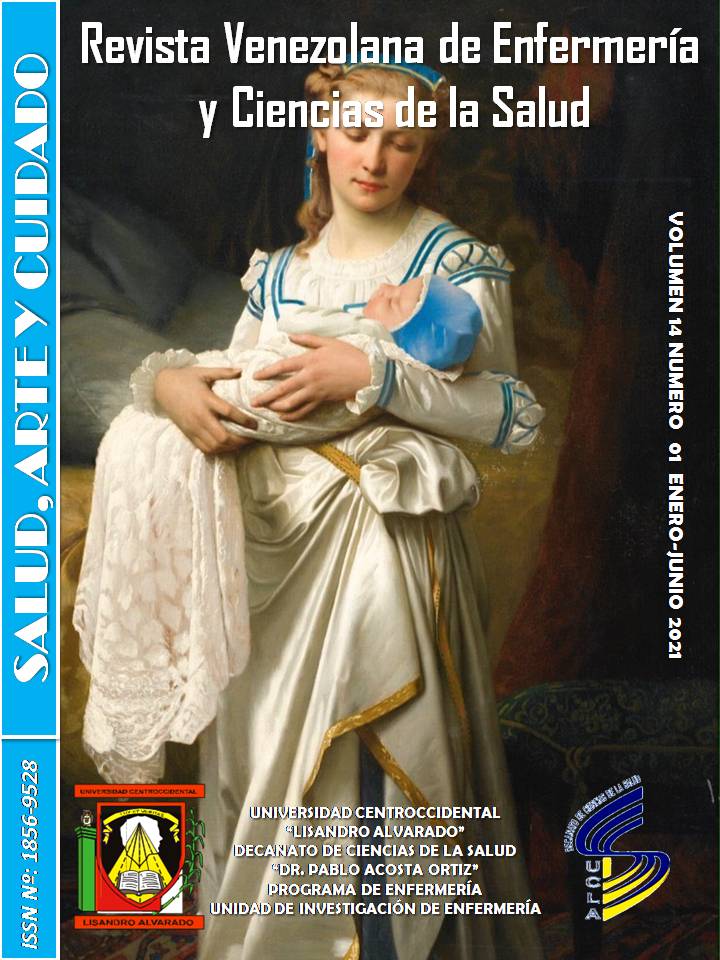Parental alienation syndrome as a form of child abuse psychological impact
DOI:
https://doi.org/10.5281/zenodo.6969363Keywords:
parental alienation, child abuse, psychological disorders, mental health, nursingAbstract
Throughout history, there have been various situations that have influenced types of physical violence, especially the most vulnerable population such as children. Nowadays, a new type of abuse is generated that breaks the traditional schemes since this type of abuse is not physical, but emotional and psychological with psychosocial impact called Parental Alienation Syndrome (PAS), which is defined as the Negative predisposition exercised by the parent who has custody of the children against the other parent, through mental manipulation. It occurs especially in some marital ruptures of serious conflict, where the alienating parent, through oral messages, exerts negative influence on the children against the other parent. Children who suffer from this syndrome develop a pathological and unjustified hatred towards the alienated parent, which leads to devastating consequences on their physical and psychological development. In Venezuela it is an innovative topic since although it is true that its definition dates back to past scientific research, in our country not much was known about the subject, until today where cases that present said syndrome can be evidenced, evidenced after repulsive behaviors of boys, girls and adolescents, against one of their parents, aligned in favor of one of them. In this sense, the following essay is presented, with a brief analysis of this Syndrome as a factor of child abuse, together with the negative impact that the inclusion of children in parental separation disputes has on a psychological level, in order to give a contribution to the study of this topic, since at the level of Venezuelan psychology, there are very few studies carried out on this topic.
Downloads
References
Convención Americana D Los Derechos Humanos. Arti 8, 11, 4,5, 119.136.127.160 Declaración de Ginebra sobre los Derechos del Niño 1924.
Aguilar JM: Síndrome de Alienación Parental. Hijos manipulados por un cónyuge para odiar al otro. Editorial Almuzara. Córdoba 2004.
Seijo D, Fariña F, Novo M: Repercusiones del proceso de separación y divorcio. Recomendaciones programáticas para la intervención con menores y progenitores desde el ámbito escolar y la administración de justicia. Publicaciones 2002; 32: 199-218.
Peñaranda Quintero H. (2008) Síndrome de Alienación Proceso. Disponible en:https://www.monografias.com/trabajos65/alienacion-parental/alienacion-parental2.shtml
Gardner R: Parental Alienation Syndrome vs. Parental Alienation. Which Diagnosis Should Evaluators Use in Child-Custody Disputes? The American Journal of Family Therapy. 2002. 30(2):93-115.
Sepúlveda, Ma. Artículo titulado El Síndrome de Alienación Parental: Una forma de Maltrato Infantil. Cuad Med Forense 12 (43-44), Enero-Abril. 2006. Disponible en: http://scielo.isciii.es/scielo.php?pid=S1135-76062006000100009&script=sci_arttext&tlng=en
Fuenmayor Toro L. Reconocido el Síndrome de Alienación Parental | Domingo, 22/07/2012 11:09 PM | La Razón, pp A-2, 22-7-2012, Caracas. https://www.aporrea.org/actualidad/a147245.html
Published
How to Cite
Issue
Section

This work is licensed under a Creative Commons Attribution-NonCommercial-ShareAlike 4.0 International License.
Derechos del/de autor/es a partir del año de publicación
Esta obra está bajo la licencia:
Creative Commons Reconocimiento-NoComercial-CompartirIgual 4.0 Internacional (CC BY-NC-SA 4.0)
Las opiniones expresadas por los autores no necesariamente reflejan la postura del editor de la publicación ni de la UCLA. Se autoriza la reproducción total o parcial de los textos aquí publicados, siempre y cuando se cite la fuente completa y la dirección electrónica de esta revista. Los autores(as) tienen el derecho de utilizar sus artículos para cualquier propósito siempre y cuando se realice sin fines de lucro. Los autores(as) pueden publicar en internet o cualquier otro medio la versión final aprobada de su trabajo, luego que esta ha sido publicada en esta revista.







